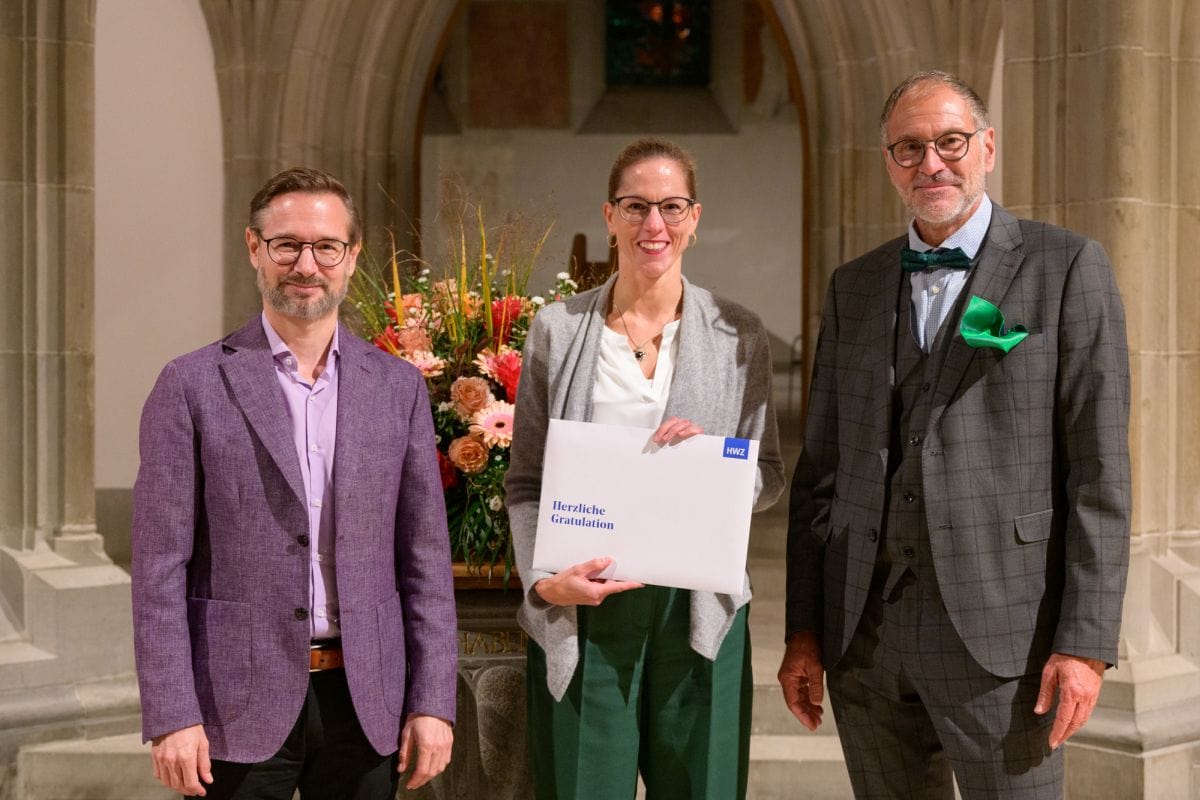UBS Sustainability Award for Consumer Behavior in the Hospitality Industry
In her final thesis, Malin Lutz investigated how consumers can be persuaded to be more sustainable when visiting restaurants. The solution: nudging.

In view of the emerging climate crisis, the catering industry is also faced with the difficult task of developing as sustainably as possible in the future. Gastronomy businesses can make an important contribution to making the world a more sustainable place. But even the most sustainable offer is in vain if it is not used. So how can consumers be persuaded to opt for more sustainable menu options? Malin Lutz, a Bachelor Business Communications graduate, got to the bottom of this question in her final thesis. She is this year's winner of the UBS Sustainability Award for outstanding bachelor theses at the HWZ Hochschule für Wirtschaft Zürich.
Nudging, a concept from behavioral economics
Changing consumer behavior can be difficult: habits, schemes and shortcuts influence the choices we make every day - including our food choices. Although consumers are usually aware of which meal is healthiest or most sustainable, they still sometimes choose not to for a variety of reasons. Nudging, a concept from behavioral economics that Malin Lutz finally explored as part of her bachelor's thesis, can reduce this undesirable behavior. The term comes from English and means "nudging" or "pushing". According to this approach, people's behavior should be steered in a desired direction with the help of a little nudge. Instead of prohibitions, the concept relies on voluntary behavioral change on the part of the individuals: Decision architectures are developed to close the intention-behavior gap (in this case, the gap between intended sustainable consumption and actual sustainable consumption). For example, the sales figures of specific dishes can be positively influenced by appropriate wording.
Based on this theoretical foundation, Malin Lutz developed nudges herself and tested them in a field experiment in two Swiss restaurants over a period of several weeks. As part of this experiment, she gave a celery schnitzel, for example, the sonorous and much tastier name "Terroir Schnitzel à la Ruben" in order to achieve an increase in sales. Even if the sales figures in the experiment did not change as expected for various reasons, this is not a rejection of nudging: Nudges have the potential to contribute to the promotion of a viable and sustainable Swiss gastronomy, as the paper shows.








